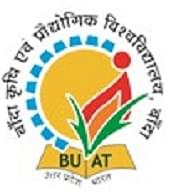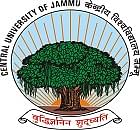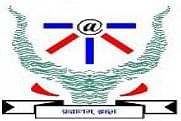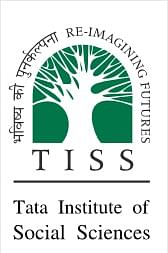Introduction
about Ph. D in Accounting
Ph.D. in Accounting from best college is an
advanced academic degree program designed for individuals seeking to pursue
research and scholarly careers in the field of accounting. It is typically a
rigorous and specialized program that prepares students for academic positions
in universities, research institutions, and policy organizations, as well as
for leadership roles in the accounting profession. The program combines
advanced coursework, research methodology training, and original dissertation
research to develop expertise in accounting theory, research, and practice.
Key
Components:
Advanced
Coursework:
The curriculum includes
advanced courses in accounting theory, financial accounting, managerial
accounting, auditing, taxation, and specialized areas such as forensic
accounting, international accounting, or accounting information systems.
Students delve deeply into
theoretical frameworks, empirical methods, and contemporary issues in
accounting research.
Research
Methodology:
Training in research
methodologies, including quantitative methods, qualitative methods,
experimental design, archival research, and statistical analysis.
Emphasis on developing
skills in critical thinking, problem-solving, and conducting original research
in accounting.
Seminar
Series:
Participation in seminar
series where faculty, visiting scholars, and students present and discuss
research papers, current topics, and emerging trends in accounting research.
Opportunities to engage in
scholarly debates, receive feedback on research ideas, and network with peers
and experts in the field.
Teaching
Experience:
Opportunities for Ph.D.
students to gain teaching experience by assisting faculty with undergraduate or
graduate-level accounting courses.
Training in pedagogy,
curriculum development, classroom management, and assessment methods.
Comprehensive
Examinations:
Completion of comprehensive
examinations covering core areas of accounting knowledge, research
methodologies, and theoretical frameworks.
Demonstration of mastery of
foundational concepts and readiness to undertake original dissertation
research.
Dissertation
Research:
Development and execution of
an original research project under the supervision of a faculty advisor.
Identification of a research
topic, formulation of research questions, literature review, data collection,
analysis, and interpretation of findings.
Writing and defending a
dissertation that contributes to the body of knowledge in accounting and
demonstrates the student's ability to conduct independent research.
Career
Prospects:
Graduates with a Ph.D. in
Accounting are prepared for a variety of career paths, including:
Faculty positions in
universities and colleges, where they conduct research, teach accounting
courses, and contribute to academic scholarship.
Research positions in policy
organizations, think tanks, and research institutions, where they analyze
accounting policies, regulations, and practices.
Leadership roles in
accounting firms, corporations, and government agencies, where they provide
expertise in accounting research, analysis, and strategic decision-making.
What is
admission process for Ph. D in Accounting ?
The admission process 2024 Ph.D. in Accounting varies by institution, but generally involves the following
steps:
1. Research
Programs and Institutions:
Identify universities and
academic institutions that offer Ph.D. programs in Accounting.
Evaluate the faculty,
research facilities, program focus, and available resources to find a match for
your research interests and career goals.
2. Meet
Prerequisites:
Academic
Background: Most programs require
applicants to have a master's degree in accounting, finance, business
administration, economics, or a related field. Some programs may accept
candidates with a bachelor’s degree if they demonstrate exceptional academic
performance or relevant professional experience.
GPA: A strong academic record is typically
required, with a minimum GPA of 3.0 on a 4.0 scale. More competitive programs
may have higher GPA requirements.
3.
Standardized Tests:
GMAT or GRE: Most programs require Graduate Management
Admission Test (GMAT) or Graduate Record Examination (GRE) scores. Check the
specific requirements of the programs you are applying to.
English
Proficiency Tests: For
non-native English speakers, proficiency in English must be demonstrated
through tests like TOEFL or IELTS. Minimum score requirements typically range
around 90-100 for TOEFL iBT or 7.0 for IELTS.
4. Prepare
Application Materials:
Application
Form: Complete the university’s online application
form.
Transcripts: Submit official transcripts from all
post-secondary institutions attended.
Letters of
Recommendation:
Typically, 2-3 letters from academic or professional references who can attest
to your qualifications, research potential, and suitability for doctoral study.
Statement
of Purpose: A detailed essay outlining
your academic and professional background, research interests, career goals,
and reasons for pursuing a Ph.D. in Accounting. This document should
demonstrate your fit with the program and how your research interests align with
the faculty’s expertise.
Resume/CV: An updated curriculum vitae or resume
highlighting your academic qualifications, research experience, relevant work
experience, and any other pertinent achievements.
5. Research
Proposal (Optional):
Some programs may require a
preliminary research proposal outlining your intended research topic,
objectives, methodology, and significance of the study. Even if not required,
submitting a research proposal can strengthen your application.
6.
Application Fee:
Pay the application fee as
required by the university.
7.
Interviews:
Shortlisted candidates may
be invited for an interview. This can be conducted in person, over the phone,
or via video conference. The interview assesses your fit for the program and
your research potential.
8.
Financial Aid and Scholarships:
Explore opportunities for
financial aid, scholarships, or assistantships. This might involve additional
applications or statements.
9.
Submission and Follow-Up:
Submit all materials by the
deadline.
Follow up with the
admissions office to ensure all components of your application have been
received and are complete.
10.
Decision and Acceptance:
Admissions decisions are
typically communicated several months after the application deadline.
If accepted, you will
receive an offer letter outlining the details of your admission and any funding
packages.
Accept the offer and
complete any additional enrollment steps required by the university.
What is
eligibility for Ph. D in Accounting ?
The eligibility criteria for Ph.D. in Accounting can vary by institution, but generally include the
following:
1. Academic
Qualifications:
Master's
Degree: Most programs require
applicants to have a master's degree in accounting, finance, business
administration, economics, or a related field. Some programs may accept
candidates with a bachelor’s degree if they demonstrate exceptional academic
performance or relevant professional experience.
GPA: A strong academic record is typically
required, with a minimum GPA of 3.0 on a 4.0 scale. More competitive programs
may have higher GPA requirements.
2.
Standardized Tests:
GMAT or GRE: Most programs require Graduate Management
Admission Test (GMAT) or Graduate Record Examination (GRE) scores. Check the
specific requirements of the programs you are applying to.
English
Proficiency Tests: For
non-native English speakers, proficiency in English must be demonstrated
through tests like TOEFL or IELTS. Minimum score requirements typically range
around 90-100 for TOEFL iBT or 7.0 for IELTS.
3. Research
Experience:
Evidence of research
experience is often required. This can include a master's thesis, independent
research projects, publications, presentations at conferences, or relevant
professional experience in accounting research or practice.
4. Letters
of Recommendation:
Typically, applicants are
required to submit 2-3 letters of recommendation from academic or professional
references who can attest to their qualifications, research potential, and
suitability for doctoral study.
5.
Statement of Purpose:
A detailed statement
outlining the applicant's academic and professional background, research
interests, career goals, and reasons for pursuing a Ph.D. in Accounting. This
document should demonstrate the applicant's fit with the program and how their
research interests align with the faculty's expertise.
6.
Resume/CV:
An updated curriculum vitae
or resume highlighting the applicant's academic qualifications, research
experience, relevant work experience, and any other pertinent achievements.
Summary:
Eligibility for a Ph.D. in
Accounting typically requires a strong academic background, research potential,
and clear career goals in academic or research-oriented positions in the field
of accounting. Applicants should carefully review the specific eligibility
criteria of each program they are interested in, as requirements may vary.
Preparing a comprehensive application that highlights their strengths and
aligns with the program's focus is essential for admission to a Ph.D. program
in Accounting.
What is
syllabus for Ph. D in Accounting?
The syllabus for Ph.D. in Accounting can vary significantly depending on the institution offering the
program and the specific focus areas within the field. However, here is a
general outline of the components commonly found in such programs:
Core
Courses:
Advanced
Accounting Theory:
Exploration of theoretical
frameworks and conceptual models underpinning financial accounting, managerial
accounting, and auditing.
Analysis of current issues
and debates in accounting theory, including agency theory, positive accounting
theory, and stakeholder perspectives.
Quantitative
Research Methods:
Training in quantitative
research methodologies, statistical analysis techniques, and econometric
modeling relevant to accounting research.
Hands-on experience in data
collection, data management, and statistical software applications.
Qualitative
Research Methods:
Introduction to qualitative
research designs, data collection methods, and analysis techniques commonly
used in accounting research, such as interviews, case studies, and content
analysis.
Ethical considerations and
challenges in qualitative research.
Specialized
Seminars and Electives:
Financial
Accounting:
In-depth study of financial
reporting standards, accounting principles, and financial statement analysis.
Examination of current
topics in financial accounting research, such as earnings management, fair
value accounting, and accounting conservatism.
Managerial
Accounting:
Analysis of managerial
accounting concepts and techniques for decision-making, performance evaluation,
and strategic planning.
Exploration of topics such
as cost allocation, budgeting, performance measurement, and management control
systems.
Auditing
and Assurance:
Study of auditing standards,
audit methodologies, and professional ethics in auditing practice.
Research on audit quality,
auditor independence, internal control systems, and emerging issues in
auditing.
Taxation:
Overview of tax law
principles, tax planning strategies, and tax compliance issues.
Research on tax policy, tax
incentives, international taxation, and the impact of tax regulations on
business decisions.
Empirical
Research in Accounting:
Application of empirical
research methods to address accounting research questions and hypotheses.
Design and execution of
empirical studies using archival data, survey data, experimental methods, or
field studies.
Dissertation
Research:
Proposal
Development:
Preparation of a research
proposal outlining the research questions, theoretical framework, methodology,
and significance of the study.
Literature review and
identification of gaps in existing research.
Data
Collection and Analysis:
Conducting original research
under the supervision of a faculty advisor.
Collection of empirical
data, analysis using appropriate research methods, and interpretation of
findings.
Dissertation
Writing and Defense:
Writing the dissertation,
which typically consists of several chapters including an introduction,
literature review, methodology, results, discussion, and conclusion.
Oral defense of the
dissertation before a committee of faculty members.
Professional
Development:
Teaching
Experience:
Opportunities for Ph.D.
students to gain teaching experience by assisting faculty with undergraduate or
graduate-level accounting courses.
Training in pedagogy,
curriculum development, and classroom management.
Publication
and Presentation Skills:
Guidance on preparing
research for publication in academic journals, conference proceedings, or other
scholarly outlets.
Practice in presenting
research findings at conferences, seminars, or symposiums.












